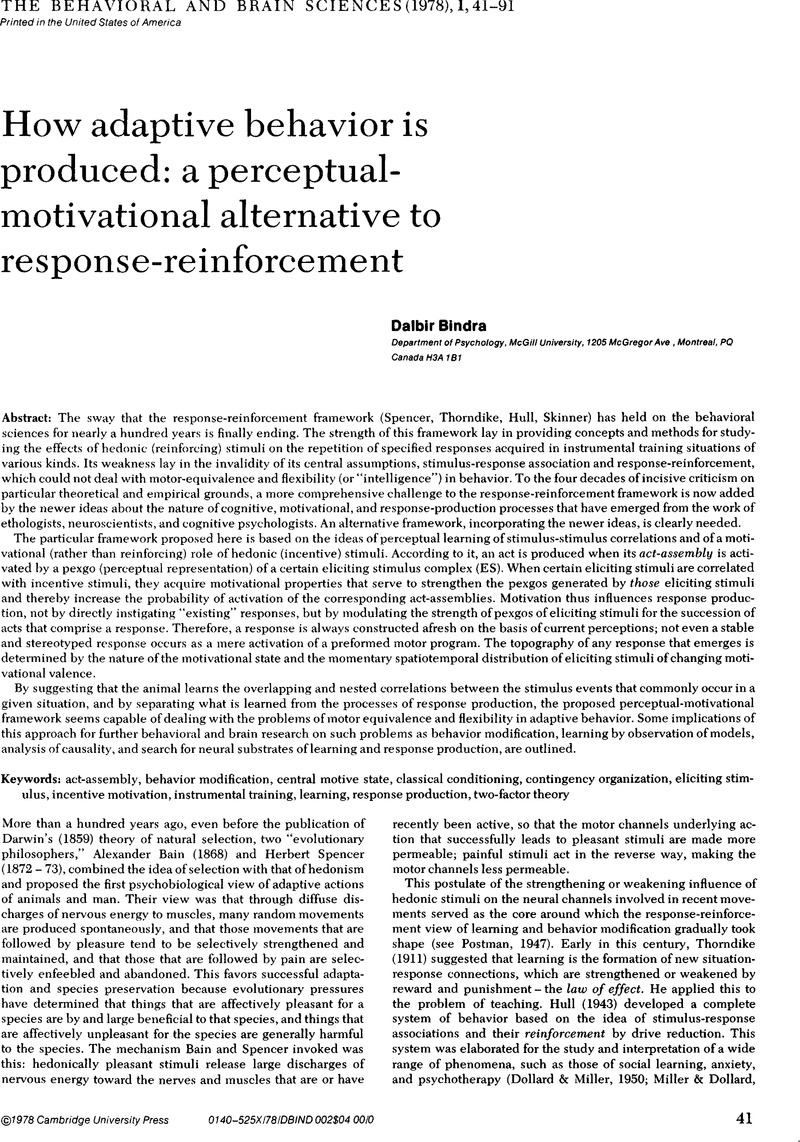No CrossRef data available.
Article contents
Feedback systems invite tautological constructs
Published online by Cambridge University Press: 04 February 2010
Abstract
An abstract is not available for this content so a preview has been provided. Please use the Get access link above for information on how to access this content.

- Type
- Open Peer Commentary
- Information
- Copyright
- Copyright © Cambridge University Press 1978
References
REFERENCES
Groesbeck, R. W. and Duerfeldt, P. H.Some relevant variables in observational learning of the rat. Psychonomic Science, 1971, 22:41–43.CrossRefGoogle Scholar
Krasner, L.On the death of behavior modification. American Psychologist, 1976,31:387–388.CrossRefGoogle ScholarPubMed
Levine, F. M. and Fasnacht, G.Token rewards may lead to token learning. American Psychologist, 1974,29:816–820.CrossRefGoogle Scholar
Moore, R.Imprisoning abstractions. Contemporary Psychoanalysis, 1974, 10:503–510.CrossRefGoogle Scholar
Notterman, J. M., Filion, R. D. L., and Mandriota, F. J.Perception of changes in certain exteroceptive stimuli. Science, 1971,173:1206–1211.CrossRefGoogle ScholarPubMed


